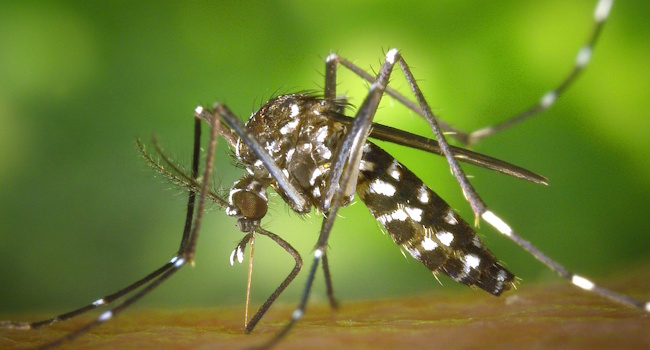Risk for Tourists? Distribution, Diseases & Protection
The Tiger mosquito (Aedes albopictus) has spread from Asia to Southern Europe in recent years and is now widespread in Greece. Tourists often ask: How likely is it to be bitten by a tiger mosquito? Can it transmit diseases? And how can you best protect yourself during a holiday in Greece? This article provides all the important information, geographical hotspots of distribution in Greece, prevention tips, and current assessments.
What is the Tiger Mosquito?
The tiger mosquito is an invasive species originally from Southeast Asia. It is black with distinctive white stripes on its legs and body – hence the name “tiger mosquito.”

Unlike most local mosquitoes, it also bites during the day, especially in the early morning and late afternoon.
Particularly concerning: The tiger mosquito can transmit diseases such as Dengue, Chikungunya, and Zika virus. In Southern Europe, local outbreaks have been recorded in recent years.
Distribution of Tiger Mosquitoes in Greece
Tiger mosquitoes have been documented in Greece since the 2000s and continue to spread due to the warm climate.
Main areas of distribution
- Mainland (Northern and Central Greece): Particularly affected regions include Thessaloniki, Athens, and Volos.
- Peloponnese: Also has a stable population due to ideal climatic conditions.
- Islands: Tiger mosquitoes have been spotted multiple times on larger islands like Crete, Corfu, and Rhodes, as well as some smaller islands.
- Urban areas: Since tiger mosquitoes prefer small water collections (flower pots, rain barrels, drains), their density is often higher in cities than in rural areas.
Conclusion: Tourists in Greece should expect tiger mosquitoes everywhere, especially during the summer months.
Diseases Transmitted by the Tiger Mosquito
Tiger mosquitoes are feared worldwide because they can transmit various tropical diseases.
Diseases that could theoretically occur in Greece:
- Dengue fever – causes high fever, headache, and joint pain.
- Chikungunya – similar symptoms to dengue, often with severe joint pain.
- Zika virus – known from South America, can rarely cause serious complications.
⚠️ Important: In Greece, only rare, isolated cases of locally transmitted diseases have been reported. The biggest risk arises if infected travelers return from tropical countries and are bitten by tiger mosquitoes there. The likelihood of tourists contracting these diseases in Greece is currently low – but caution is advised.
Our Tip
Hotels in Greece are best booked via Booking.com: wide selection from guesthouses to resorts, real guest reviews, flexible (often free) cancellation, and fair prices.
Tiger Mosquito Bites: Symptoms and Differences from Normal Mosquito Bites
Bites from tiger mosquitoes are usually more painful and itchier than normal mosquito bites. Typical features:
- More pronounced red swelling
- Longer-lasting itching
- Often multiple bites in a row, as tiger mosquitoes bite repeatedly
For allergy sufferers, bites can be especially uncomfortable and may trigger larger skin reactions.
Protection Against Tiger Mosquitoes During a Greece Holiday
To prevent tiger mosquitoes from ruining your vacation, tourists should follow a few simple protective measures:
Clothing
- Wear long, light-colored clothing, especially in the morning and evening.
- Thin fabrics are ideal for protection while staying cool.
Repellents
- Repellents containing DEET, Icaridin, or Citriodiol are particularly effective.
- Apply several times a day, as effectiveness decreases over time.
Accommodation
- Prefer hotels with air conditioning and mosquito nets.
- Keep windows and doors closed or secure them with fly screens.
Environment
- Remove any standing water nearby (buckets, dishes, flowerpots) – tiger mosquitoes lay eggs there.
Tips for Families with Children
Use mild but effective repellents for children (e.g., low-concentration Icaridin). Also, mosquito nets over cots are recommended, as tiger mosquitoes are active during the day.
Traveling to Greece: How Big is the Risk?
For most tourists, tiger mosquitoes remain more of a nuisance than a serious threat. However, with their spread, the risk of diseases occurring may increase in the future. Especially in the hot summer months, tiger mosquitoes are widespread in Greece.
👉 Those who take proper precautions can enjoy their holiday in Greece without worry.
Conclusion: Tiger Mosquito in Greece – Alert, but No Reason to Panic
The tiger mosquito is widespread in Greece, especially in cities and on popular islands such as Crete, Rhodes, and Corfu. It can transmit diseases, although very few cases have been reported so far. Tourists should take the risk seriously but not be alarmed. With repellents, appropriate clothing, and simple precautions, the risk can be significantly reduced.
For tourists: Stay informed, take protective measures – and enjoy your holiday.
Animals Greece – all articules